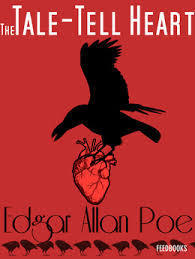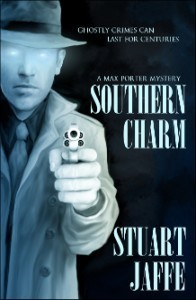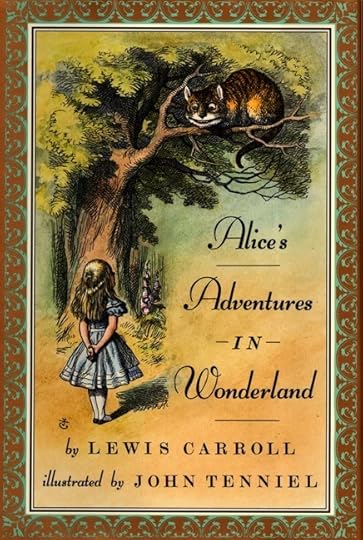In any work of fiction, the author’s choice of setting establishes some basic information—its historical, geographical, and physical context, for example. The where, the when, the what was the weather like, etc. Setting, however, is more than simply the approximate time and place in which a work is set.
When written well, setting can provide an endless source of details that help make a story more vivid for readers as well as provide new ideas and inspiration for the writer. Generally speaking, books in which the setting is skillfully presented are better books because of it.
One Big Set Up
Where a story takes place—the American South, on a crowded elevator, on a cruise ship or, perhaps, in the belly of a dragon—influences the behaviors of the characters as well as the readers’ reactions to the story’s events. When a work takes place—during the Vietnam War, at the turn of the twentieth-century, “a long, long time ago”, today, or far in the future—is equally important. Post-modern author Nicholson Baker wrote an entire novel, The Mezzanine, taking place during a man’s lunchtime trip up an escalator of the office building where he is employed. So, you see, setting can provide fodder for much more than meets the eye.
Setting as Character in the Horror Story
 Clearly, setting is more important in some works than others. It can work as a reflection of the characters. It acts on the characters. And, in some cases, setting acts as almost a character itself. Edgar Allen Poe was masterful at using physical setting to chilling effect in his gothic tales. Poe’s story of a gruesome murder, The Tell-Tale Heart, occurs in an unorthodox place: a mysterious, rather amorphous, mansion (something that’s become a bit cliché, but at the time was rather new). It also begins in the dark of night, reinforcing the dark mood.
Clearly, setting is more important in some works than others. It can work as a reflection of the characters. It acts on the characters. And, in some cases, setting acts as almost a character itself. Edgar Allen Poe was masterful at using physical setting to chilling effect in his gothic tales. Poe’s story of a gruesome murder, The Tell-Tale Heart, occurs in an unorthodox place: a mysterious, rather amorphous, mansion (something that’s become a bit cliché, but at the time was rather new). It also begins in the dark of night, reinforcing the dark mood.
However, Poe doesn’t stop there, he goes so far as to give the old house a heartbeat of its own. The main character, whose name we don’t know, is not certain if the heartbeat that he hears is his own, that of the old man he has just murdered and subsequently dismembered, or, if perhaps the house itself has a beating heart. In this terrifying tale, the setting acts almost as the conscience of the main character. The Tell-Tale Heart could not happen anywhere else or at any other time imaginable. That, folks, is setting as character.
Setting and the Paranormal
 In the three novels in my Max Porter paranormal mystery series—Southern Bound, Southern Charm, and Southern Belle—setting plays a key role in both story and character development. At series beginning, Max Porter has just changed settings himself. He and his wife, Sandra, have relocated from Michigan to North Carolina, hoping for a fresh start in a new place, with a new home, in a new job.
In the three novels in my Max Porter paranormal mystery series—Southern Bound, Southern Charm, and Southern Belle—setting plays a key role in both story and character development. At series beginning, Max Porter has just changed settings himself. He and his wife, Sandra, have relocated from Michigan to North Carolina, hoping for a fresh start in a new place, with a new home, in a new job.
Max Porter was trying to escape the past, his former setting, and a different kind of past comes after him in Winston-Salem, North Carolina. The old building, which houses his new office, is haunted by a 1940s detective. As a result, Max finds himself thrust neck-deep in a world of old mysteries and dangerous enemies. Setting is critical in my Max Porter books because the history of Winston-Salem (and later, much of North Carolina) has direct influence on the characters and stories. These stories can’t happen without it and wouldn’t happen any place else.
Character Versus Setting in Fantasy and Dystopian Novels
 Sometimes a story’s central conflict is between the protagonist and the setting—for example, in the fantasy classic Alice in Wonderland, the setting “down the rabbit hole” drives the story’s plot. Alice is, in many ways, an intruder in a magical universe with social mores and logic of its own (or lack thereof) that she cannot understand or predict. In fact, much of the tale involves her “learning” the rules of this new world (see also, The Wizard of Oz and Gulliver’s Travels). In this case, the setting—and Alice’s reactions to it—helps define for readers who Alice is as a character.
Sometimes a story’s central conflict is between the protagonist and the setting—for example, in the fantasy classic Alice in Wonderland, the setting “down the rabbit hole” drives the story’s plot. Alice is, in many ways, an intruder in a magical universe with social mores and logic of its own (or lack thereof) that she cannot understand or predict. In fact, much of the tale involves her “learning” the rules of this new world (see also, The Wizard of Oz and Gulliver’s Travels). In this case, the setting—and Alice’s reactions to it—helps define for readers who Alice is as a character.
Like Alice, for Malja, the heroine of my post-apocalyptic fantasy series, The Malja Chronicles, the setting provides a primary source of conflict. While the setting of any novel is important, the setting for a dystopian novel is key. It is, after all, the changing world, or setting, that makes a post-apocalyptic novel really, well, post-apocalyptic. A dystopian setting that provides the main character with a chance to rise above the dark world and triumph is highly effective.
Remember, setting doesn’t simply include time and place, but also the society and societal expectations. Does the world expect your character to be a slave or a hero? For Malja, there’s no question. She’s not just a heroine. She’s a kickass heroine to boot. She has to be to survive in the dystopian parallel universe of Corlin…and wherever she finds herself next.
What’s Your Setting of Choice?
Have you read any stories with great settings that are more than meets the eye? Have you visited any fictional landscapes that you’ll never forget? I’d love to hear about some of your favorite settings, whatever the genre.
The post More Than Meets The Eye: The Setting As Character in Paranormal and Fantasy Fiction appeared first on Stuart Jaffe.
 newest »
newest »
 newest »
newest »
 Jackson, James Lee Burke's mysteries truly make Louisiana (especially the "back woods") a character. Some of those mysteries go into Montana (where Burke spends some of each year) and they just don't work as well because of this. I'm not a big Faulkner fan, so I'll have to take your word, but I agree with you about Leonard and Chandler, too.
Jackson, James Lee Burke's mysteries truly make Louisiana (especially the "back woods") a character. Some of those mysteries go into Montana (where Burke spends some of each year) and they just don't work as well because of this. I'm not a big Faulkner fan, so I'll have to take your word, but I agree with you about Leonard and Chandler, too.

 Clearly, setting is more important in some works than others. It can work as a reflection of the characters. It acts on the characters. And, in some cases, setting acts as almost a character itself. Edgar Allen Poe was masterful at using physical setting to chilling effect in his gothic tales. Poe’s story of a gruesome murder, The Tell-Tale Heart, occurs in an unorthodox place: a mysterious, rather amorphous, mansion (something that’s become a bit cliché, but at the time was rather new). It also begins in the dark of night, reinforcing the dark mood.
Clearly, setting is more important in some works than others. It can work as a reflection of the characters. It acts on the characters. And, in some cases, setting acts as almost a character itself. Edgar Allen Poe was masterful at using physical setting to chilling effect in his gothic tales. Poe’s story of a gruesome murder, The Tell-Tale Heart, occurs in an unorthodox place: a mysterious, rather amorphous, mansion (something that’s become a bit cliché, but at the time was rather new). It also begins in the dark of night, reinforcing the dark mood.
 Sometimes a story’s central conflict is between the protagonist and the setting—for example, in the fantasy classic Alice in Wonderland, the setting “down the rabbit hole” drives the story’s plot. Alice is, in many ways, an intruder in a magical universe with social mores and logic of its own (or lack thereof) that she cannot understand or predict. In fact, much of the tale involves her “learning” the rules of this new world (see also, The Wizard of Oz and Gulliver’s Travels). In this case, the setting—and Alice’s reactions to it—helps define for readers who Alice is as a character.
Sometimes a story’s central conflict is between the protagonist and the setting—for example, in the fantasy classic Alice in Wonderland, the setting “down the rabbit hole” drives the story’s plot. Alice is, in many ways, an intruder in a magical universe with social mores and logic of its own (or lack thereof) that she cannot understand or predict. In fact, much of the tale involves her “learning” the rules of this new world (see also, The Wizard of Oz and Gulliver’s Travels). In this case, the setting—and Alice’s reactions to it—helps define for readers who Alice is as a character.



James Lee Burke does a great job of developing place in his Louisiana mysteries. I also like how William Faulkner uses place. Raymond Chandler, too.